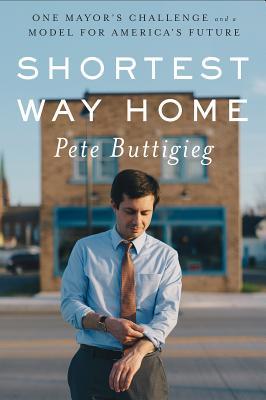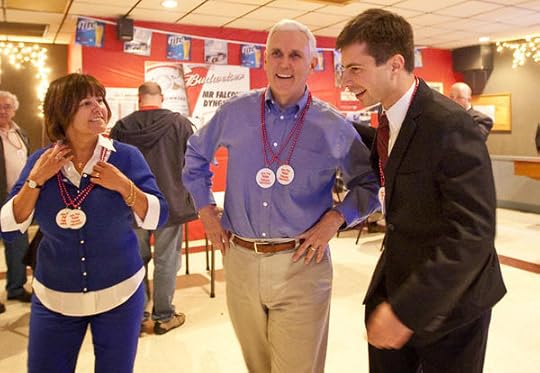What do you think?
Rate this book


352 pages, Hardcover
First published February 12, 2019

“some of the most important policy dynamics of our time have to do with the relationships, and the tension, between state and local government.”I pulled that quote out for you to see because I think this is something national pundits and talking heads miss completely.
“Legislation is often nearly identical from state to state—so much so that journalists sometimes find copy-paste errors where the wrong state is mentioned in the text of a bill. Tellingly, by 2014, ALEC had decided to expand its model beyond the state level—not by going federal, but instead targeting local policy through a new offshoot called the American City County Exchange.”Democrats must be willing to compete in red zones—many times it is only because they are not competing that they have less support.
Of course, this shouldn’t have to be the case: Buttigieg, or any other candidate, should be “allowed” to be as stereotypically gay as they like. But we’re kidding ourselves if we see Buttigieg’s capacity for heterosexual identification as anything but politically useful. Though it may be painful to acknowledge that Buttigieg’s capacity to “read” as straight serves him electorally, well, it does; and if Barack Obama was the right person to make portions of white America comfortable voting for a black man, perhaps Pete Buttigieg is equally well positioned to pull a similar feat with the country’s straight electorate. He’s the transitional figure we need.
Readers looking for radical politics or concrete solutions in the pages of Shortest Way Home may be disappointed. Buttigieg’s insistence on patience as our neighbors become accustomed to ideas like gay marriage may leave many cold, reasonably chafing at being told to wait until older conservatives come around to recognizing their full humanity. But the state of politics in 2019 might be such that simply framing inequality or discrimination as problems is enough of a relief that one need not have a solution in hand.
The economic crisis that coincided with millennials’ early adulthood shattered a foundational tenet of the American dream: that each of us controlled our own destiny. For the United States’s young adults, the path home that Buttigieg lays out — returning to a hometown and finding professional opportunity and social acceptance, or simply feeling enough stability and certainty to put down roots somewhere, anywhere — may well read like a path to the future.




"There is no going back. South Bend cannot and should not rewind to the Studebaker heyday of the 1950s, just as America cannot restore the old order in which families obeyed a single, male head of household, each race had its so-called place, average weather was the same from one decade to the next, and a job was for life."

